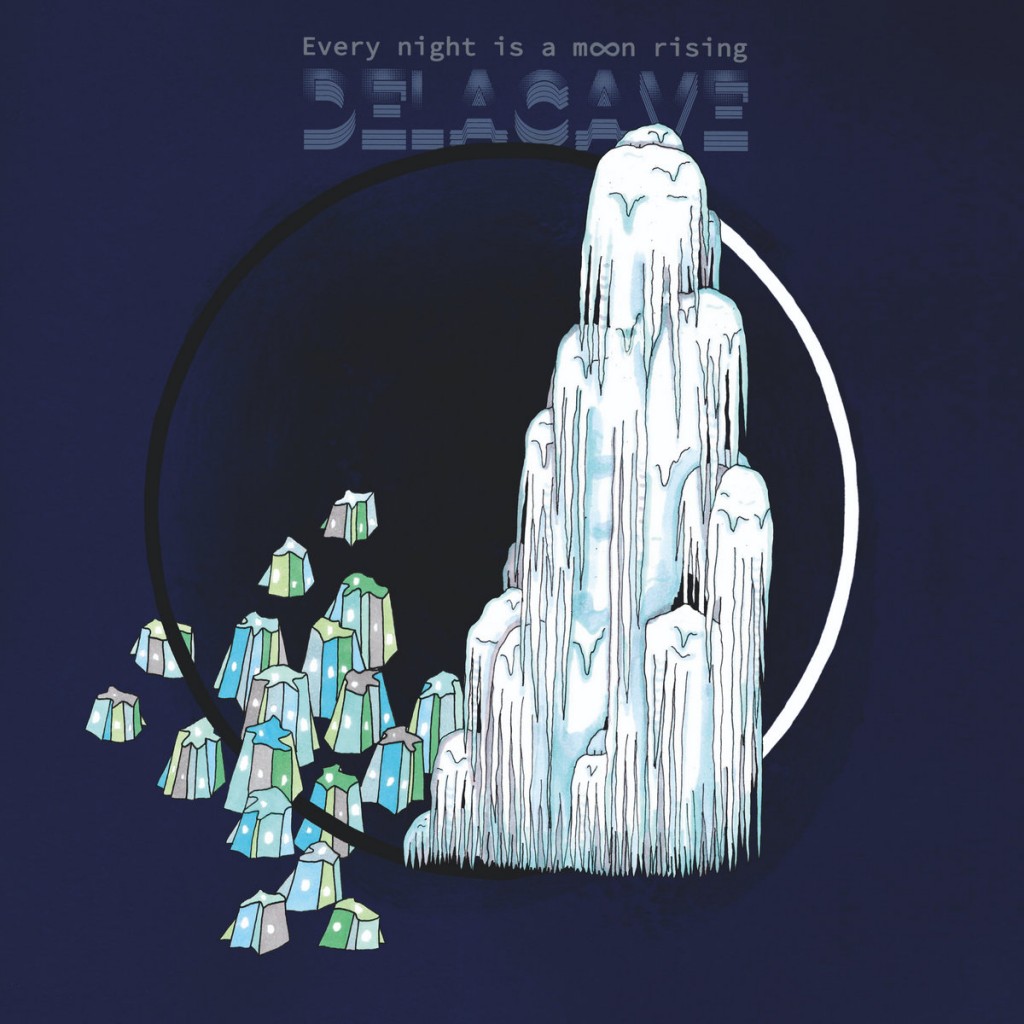 Every Night Is A Moon Rising (2023), the fourth album by Delacave, reveals that Seb Normal (synths, drums programming, and arrangements) and Liliane Chansard (vocals, bass, lyrics, and illustrations – as she is also a visual artist) are interested in people’s connection with nature. Their message now is: “every atom of our beings is nature”. Lyrics such as, “tropical bears in the white sand”, from the album’s opener Fatherless, and, “fish rise to the surface”, from the masterpiece Crossing Times, suggest that the duo, which call themselves a ‘gloom-wave’ band, are trying to give us a bigger picture of the world in which we live, with its rich variety of species that include both humans and non-humans. Every Night Is A Moon Rising (2023), the fourth album by Delacave, reveals that Seb Normal (synths, drums programming, and arrangements) and Liliane Chansard (vocals, bass, lyrics, and illustrations – as she is also a visual artist) are interested in people’s connection with nature. Their message now is: “every atom of our beings is nature”. Lyrics such as, “tropical bears in the white sand”, from the album’s opener Fatherless, and, “fish rise to the surface”, from the masterpiece Crossing Times, suggest that the duo, which call themselves a ‘gloom-wave’ band, are trying to give us a bigger picture of the world in which we live, with its rich variety of species that include both humans and non-humans.
Chansard’s drawings also echo this message. The small, white, floating pieces of what looks like ice, on the front-cover artwork and on the inner sleeve, are ice glaciers that have been cut off from the land, as the earth’s temperature rises, and travel in the sea, where they melt away. The ghost-looking and snow-covered mountains in front of the large moon on the front-cover have started to melt, too.
So, are Delacave actually environmentalists? And if they are, do they address the impact of human activity on the environment employing clichéd claims about buying a reusable coffee cup and recycling waste, using pictures of cute birds and animals in danger of extinction, or do they use pictures from The Ugly Animal Preservation Society and their own individual agency, like members of leaderless grassroots environmental movements, away from mainstream politics (or no politics at all), to influence spontaneous action locally and at community level?
Read more…
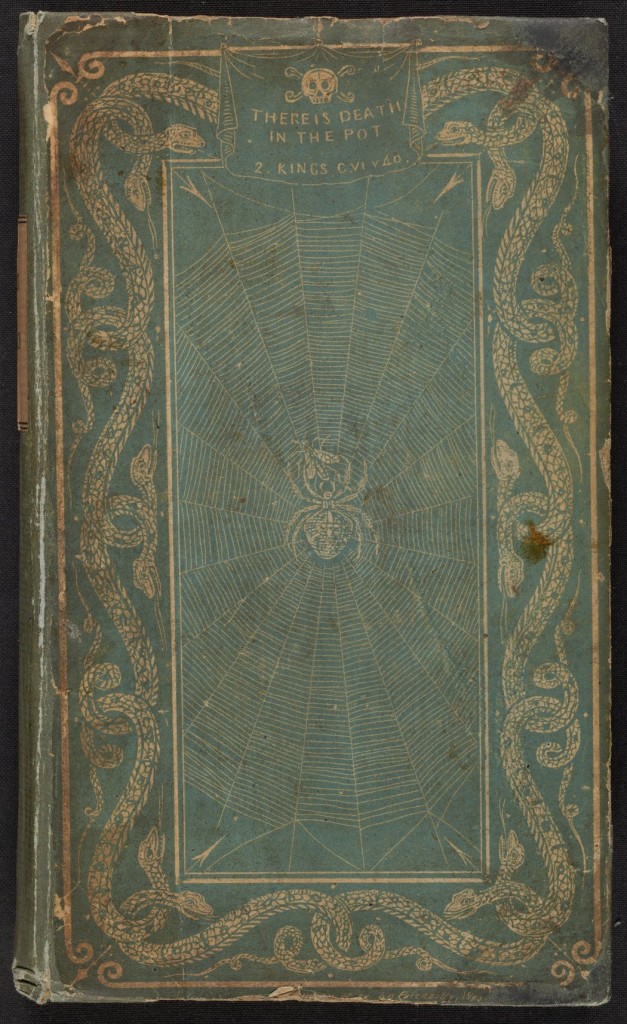 The 1820 book Death in the Pot: A Treatise on Adulterations of Food and Culinary Poisons, by the German-born and London-based chemist Friedrich Accum, was written to help consumers detect adulterated food sold as genuine. At the time, dangerous food practices that exposed people to economic frauds were widespread in the UK market, and profit-driven business owners who sold counterfeit food as genuine used additives that contained substances harmful to health. His methods could help detect whether the tea of a particular seller, for example, was genuine or just grass, which had been laid on sheets of copper to give it a golden hue and make it look like tea. They could also help detect a toxic, bleaching additive called alum, which was used to adulterate bread and make it appear whiter, allowing the baker to spend less on whiter flour, but charge more for it in the shop. The 1820 book Death in the Pot: A Treatise on Adulterations of Food and Culinary Poisons, by the German-born and London-based chemist Friedrich Accum, was written to help consumers detect adulterated food sold as genuine. At the time, dangerous food practices that exposed people to economic frauds were widespread in the UK market, and profit-driven business owners who sold counterfeit food as genuine used additives that contained substances harmful to health. His methods could help detect whether the tea of a particular seller, for example, was genuine or just grass, which had been laid on sheets of copper to give it a golden hue and make it look like tea. They could also help detect a toxic, bleaching additive called alum, which was used to adulterate bread and make it appear whiter, allowing the baker to spend less on whiter flour, but charge more for it in the shop.
The album A Story of A Global Disease (2022) by Marseille-born and Brussels-based musician Naomie Klaus also relates to fake things that are made to look genuine. It is based on an idea about the Japanese Tower in Brussels and the Japanese Gardens that surround it. The Japanese Tower was constructed during 1901-1904 by orders of King Leopold II of Belgium, who had admired a similar tower, a Japanese pagoda, at an international world fair of commerce, the 1900 Universal Exhibition in Paris, and purchased it immediately. The King then asked the French architect Alexander Marcel to modify it and re-build it for him in the gardens of his Royal Palace in Brussels. When it was completed, he promised to transfer it to the nation after his death, so when he died in 1909, it was passed to the Belgian state.
The album was recorded during the recent pandemic for the project ‘On the Go’ by a Brussels arts organisation. The project invited artists to share art with the public, while restrictions were still in place, by making music to accompany walks throughout Brussels. Klaus decided to write music for a walk in the park around the Japanese Tower. Today, the Japanese Tower is administered by a public organisation within the City of Brussels authority which uses it as a museum, the Museum of the Far East. Visitors can admire not just the architecture and the surrounding gardens, but also the building’s decorative elements, including furniture and stained-glass windows, and a collection of art objects relating to the Belgian-Japanese relations throughout the years of cultural and economic exchange between the two countries.
Klaus herself describes the album as a collection of songs about ‘the artificial paradises of globalisation’. Using a range of electronic equipment to filter voice, drum-kits, and trigger synths, she expands on the idea that copies of famous cultural artefacts – like the Japanese Tower – can be enjoyed as exotic spectacles outside of the country they were made, to talk about global communication, free trade, and the problems of a consumer society. Songs such as ‘Can I Be Your Gheisha?’, ‘Crocodile Skin Shoes’, ‘Tourism Workers’, and ‘Can You Tell Me What Is Micronet?’, question the idea that the world is a tightly-woven international community with strong cultural and economic links (through international exhibitions or festivals and inter-governmental trade agreements).
Read more…
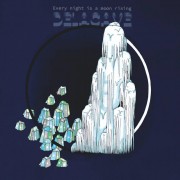
Delacave started making music in a very intimate space, a bedroom, discovering and gathering all the necessary imagination for their slow gestation to initiate Gloomy Wave.
In this fourth album, Liliane Chansard and Seb Normal intermingle their melodies even more, their harmonies sound and dissonance, and their voices adjust. Feverishness becomes strength. The different elements are linked in a blurred gap between coloured impressionism and black baroque.
They take us on a journey through the great nowhere on disparate grounds where the efforts that cannot be avoided are never in vain. The strength of lack, the wisdom of emptiness and loss, and the intensity of friendships and discoveries never perish and are always renewed.
LP / Digital Album
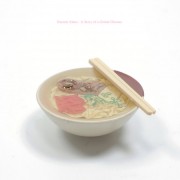
After a crush at the Brussels World Fair in 1900, King Leopold II decided, for his own personal pleasure, to have the Japanese Tower and Japanese Gardens built. In order to create this little relocated asian paradise, he had the wood, sculptures, paintings, ornaments, trees, workers and their know-how imported. For a few years he invited his entourage to enjoy it during large banquets and private receptions. He then had the idea of transforming the Japanese Tower into a luxury restaurant, but he died. This magnificent place remains closed to the public except during an annual opening.
“A Story of a Global Disease” is a short tale about artificial paradises of globalisation, a melancholic walk through the exotic relics of free trade, where whim, appropriation and appearances take precedence over otherness. Here, geishas eat chips, europeans confuse Tokyo and Beijing, and tribal ceremonies begin with samples and drumkits.
LP / Digital Album
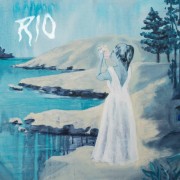
Rio’s debut album is the next to come raw gem, enlighted & enshaped by Teenage Menopause Records for your ears only.
Dark and luminous, naive and serious, Rio mixes opposites. Duo formed during confinement by these two cuties : Maxime (Pilori Prod) and Lio (Le Prince Harry, Komplikations…), Rio deploys a soundscape that is disturbing like the mist and bewitching like the song of the sirens.
Reminding the best french associations, naïve as Elie et Jacno, depth dwelling as Ruth, Rio is a path.
LP / Digital Album
|
 Every Night Is A Moon Rising (2023), the fourth album by Delacave, reveals that Seb Normal (synths, drums programming, and arrangements) and Liliane Chansard (vocals, bass, lyrics, and illustrations – as she is also a visual artist) are interested in people’s connection with nature. Their message now is: “every atom of our beings is nature”. Lyrics such as, “tropical bears in the white sand”, from the album’s opener Fatherless, and, “fish rise to the surface”, from the masterpiece Crossing Times, suggest that the duo, which call themselves a ‘gloom-wave’ band, are trying to give us a bigger picture of the world in which we live, with its rich variety of species that include both humans and non-humans.
Every Night Is A Moon Rising (2023), the fourth album by Delacave, reveals that Seb Normal (synths, drums programming, and arrangements) and Liliane Chansard (vocals, bass, lyrics, and illustrations – as she is also a visual artist) are interested in people’s connection with nature. Their message now is: “every atom of our beings is nature”. Lyrics such as, “tropical bears in the white sand”, from the album’s opener Fatherless, and, “fish rise to the surface”, from the masterpiece Crossing Times, suggest that the duo, which call themselves a ‘gloom-wave’ band, are trying to give us a bigger picture of the world in which we live, with its rich variety of species that include both humans and non-humans.



